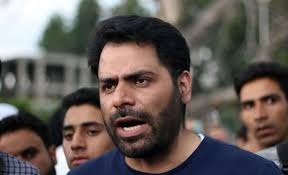By Mehr un Nisa
If you follow global human rights issues, you already know that some stories are too important and too uncomfortable for the world to ignore. One such story is that of Khurram Parvez, the Kashmiri human rights defender who has now spent four years in detention under India’s sweeping anti-terror laws. And as you read this, I encourage you to ask yourself a simple question: Why would a state with aspirations of global leadership feel threatened by a man armed only with documentation, truth and empathy?
Let us begin with the date that changed everything once again: 22 November 2021. On that day, India’s National Investigation Agency (NIA) arrested Khurram under the Unlawful Activities (Prevention) Act (UAPA), a law notorious for enabling prolonged detention without trial. For many Kashmiris, it felt like déjà vu. Khurram had already been detained before, most notably in 2016, when he was stopped at the airport while heading to Geneva to address the UN Human Rights Council and then held for 76 days under the Public Safety Act (PSA).
You might wonder: What makes him such a threat? Khurram is not a militant, not a politician and not a revolutionary calling for violent upheaval. He is, instead, the Coordinator of the Jammu Kashmir Coalition of Civil Society (JKCCS), the Chairperson of the Asian Federation Against Involuntary Disappearances (AFAD) and the Deputy Secretary-General of FIDH, one of the world’s oldest human rights federations. He has documented enforced disappearances, extrajudicial killings, torture and mass graves, issues the international community has long raised, but rarely with such meticulous detail. And that detail is exactly what frightens states engaging in counter-narratives.
Khurram’s work challenges India’s preferred strategic communication framework on Kashmir. In international relations, states rely on soft power, the ability to shape global perceptions through diplomacy, branding and carefully curated narratives. But Khurram’s reports, including the widely-cited “Structures of Violence” (2015) and the “Torture Report” (2019), disrupt that narrative by providing verifiable evidence of systemic abuses. Instead of engaging with the findings, the Indian state chose another path: criminalising the documentation process itself.
To understand why Khurram’s arrest matters beyond Kashmir, let’s place it within the framework of international norms and global governance. In 2023, the UN Working Group on Arbitrary Detention declared his imprisonment arbitrary and called for his “immediate release.” The annual UN Secretary-General’s Report on Reprisals has repeatedly listed his case since 2018, indicating a sustained campaign of harassment for engaging with UN mechanisms.
You’d think that a country seeking a larger leadership role in the rules-based international order would welcome scrutiny or at least respond constructively. But India did not comply, did not acknowledge the findings and did not provide any meaningful response. That silence is telling. It reflects a state preference for security exceptionalism, where extraordinary measures become normalised under the pretext of counterterrorism.
But here’s the twist: the FIR invoked against Khurram in 2020 did not even name him. And yet, two years later, he was arrested under far-reaching conspiracy charges. JKCCS’s published human rights reports were cited as evidence, as though documenting violations is itself a crime. His real contribution lies in his connection to families of the disappeared, mothers, wives and children left in limbo, waiting for answers. Since the 1990s, JKCCS has documented over 8,000 enforced disappearances and thousands of torture cases. This kind of work is emotionally brutal, painstaking and dangerous.
But Khurram never stopped. Even after losing his leg in 2004 when an Indian Army vehicle targeted his car, he continued. Even after repeated travel bans, raids, interrogations and arrests, he continued. And even now, from inside Rohini Jail in Delhi, he remains a symbol of resistance grounded not in violence but in moral conviction.
In 2023, he received the Martin Ennals Award, often described as the “Nobel Prize for Human Rights.” Previous laureates include global icons who shaped international human rights advocacy. So, ask yourself: How does a man celebrated worldwide as a defender of justice become a terrorist in his own homeland? The contradiction is impossible to ignore.
The story of Khurram Parvez is not just about one man. It raises deeper questions about state accountability, democratic backsliding and the erosion of civil space in regions under prolonged military control. Since the abrogation of Article 370 on 5 August 2019, India has accelerated the centralisation of power in Kashmir, politically, territorially and narratively. Raids on journalists, book bans, travel restrictions and suspension of passports have become disturbingly common. In August 2025, authorities banned several academic and journalistic works on Kashmir for allegedly promoting “false narratives.” The chilling effect is unmistakable.
This is a classic clash between realist state behaviour, prioritising control and sovereignty and liberal international norms that emphasise transparency, human rights and multilateral accountability. Khurram stands firmly in the latter camp.
As Khurram completes four years in detention on 22 November 2025, the world faces a choice. We can look away, as geopolitical calculations often encourage, or we can assert that human rights defenders are not collateral damage in territorial disputes. Khurram’s case is a litmus test for India’s democratic aspirations and its global image. It is also a test for the international community, which cannot promote a rules-based order selectively.
If you are reading this, you are part of that community. The demand is simple, principled and urgent: Release Khurram Parvez. Drop the fabricated charges. End the criminalisation of human rights documentation. Because the struggle for justice in Kashmir and anywhere else in the world cannot survive if truth-tellers are imprisoned for simply doing their job.
The author is the head of the research and human rights department of Kashmir Institute of International Relations (KIIR). She can be contacted at the following email address: mehr_dua@yahoo.com, X @MHHRsays

